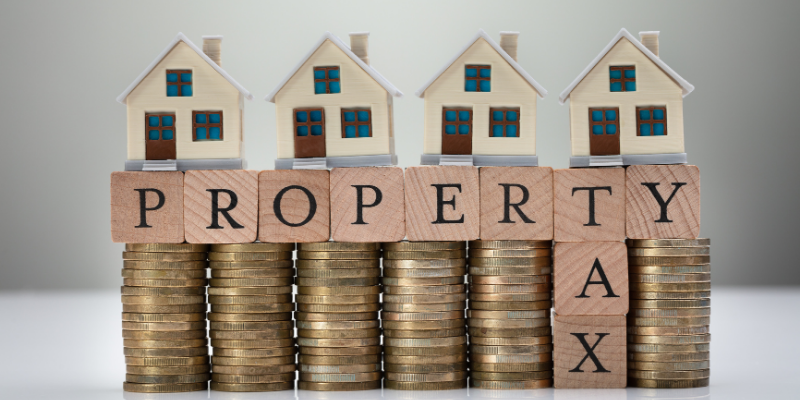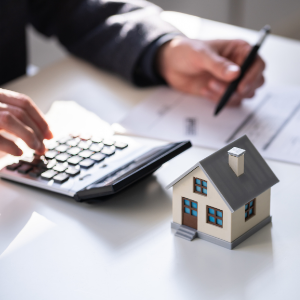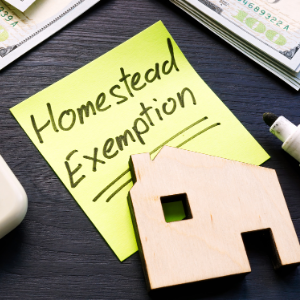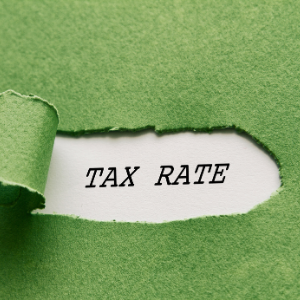
Understanding Property Tax Rates in Texas
Understanding property tax rates is critical for Texas homeowners because they can significantly impact the cost of home ownership. Texas property taxes are generally determined by local taxing authorities, which include school districts, cities, and counties.
These bodies analyze property values every year to determine the amount payable. The state does not levy property taxes but establishes assessment and collection procedures rules. Texas tax rates vary significantly between counties and municipalities due to changing financial requirements and voter-approved initiatives. Richardson, for example, is part of Dallas County, where property taxes help to fund critical public services like schools, emergency services, and infrastructure upkeep.
Notably, Texas has many exemptions that can reduce taxable value for certain homeowners, including those for seniors, veterans, and homesteads. Understanding these elements is critical for homeowners in Richardson and Texas who want to manage their spending properly.
Key Factors Affecting Property Taxes in Richardson, Texas

Several significant factors determine property tax rates in Richardson, TX, and homeowners should be aware of them. One of the most important characteristics is a property’s assessed value, which the Collin and Dallas County Appraisal Districts calculate.
These assessments are based on market value estimations and may fluctuate annually as the local real estate market changes. Another important consideration is the aggregate tax rate established by Richardson’s different taxing organizations, which include school districts, city services, and county governments.
Each body sets its rate based on the budgetary requirements for public services such as education, infrastructure upkeep, and emergency services. Homestead or over-65 exemptions can also significantly lower an individual’s property tax liability by reducing the taxable value.
Economic conditions and legislative changes at the state and local levels can also impact property taxes, as they may result in revisions to tax rates or appraisal processes. Understanding these criteria allows Richardson homeowners to handle their property taxes more efficiently.
If rising property taxes make homeownership challenging, companies like Ready House Buyer can help you sell your Richardson house fast or buy your home for cash in Garland, Plano, or Dallas, giving you financial flexibility without the stress of long market waits.
How to Calculate Your Property Tax Bill in Richardson, Texas
To determine your Richardson, TX property tax payment, you must understand the critical factors influencing the amount due. First, calculate the appraised value of your home, which is determined annually by the Dallas Central Appraisal District.
This evaluation reflects your property’s market worth and serves as the basis for taxation. Next, familiarize yourself with the current property tax rate imposed by local authorities, including the City of Richardson, Collin County, or Dallas County, depending on your location, and any applicable school districts, such as Richardson Independent School District.
Each entity has a tax rate, which adds to the overall property tax. To determine your annual property tax obligation, multiply this combined rate by your home’s appraised value.
Be aware of any exemptions you may be eligible for, such as the homestead or senior citizen exemptions, which can dramatically reduce your taxable value and lessen your total tax burden. Staying current on changes in assessed values and local tax rates will allow you to forecast future property tax swings in Richardson.
Comparing Richardson’s Property Tax Rate to Other Cities in Texas
Regarding property tax rates, Richardson, TX, stands out from other communities in Texas. Texas property taxes vary greatly depending on local government budgets and school district funding requirements.
The city’s commitment to providing high-quality public services and amenities impacts Richardson’s property tax rate. The town has a tax rate that funds infrastructure development, education, and community programs.
Larger metropolitan locations like Dallas or Austin may have higher property tax rates due to denser populations and increased demand for municipal services. On the other hand, smaller towns or rural regions may have lower rates but may not provide the same level of services or educational opportunities as Richardson.
Understanding these distinctions is critical for prospective homeowners assessing their financial responsibilities in diverse Texas communities. Analyzing Richardson’s rate compared to adjacent areas like Plano or Garland might provide insight into the community’s economic priorities while balancing affordability with access to quality services and schools.
Tips to Lower Your Property Taxes in Richardson, TX

Homeowners in Richardson, TX, who want to minimize their property taxes can benefit from understanding the assessment process and researching potential exemptions. First, check your property tax assessment for any flaws or anomalies that may have inflated your home’s worth; challenging errors with the appraisal district can result in a reduction.
Consider homestead exemptions, which can result in significant savings by lowering the taxable value of your primary house. Specific exclusions provide further relief to elders, those with disabilities, and veterans.
Specific local rules may also allow for deductions on energy-efficient house upgrades. Staying informed about Richardson’s tax laws and communicating openly with the local tax authority might help you uncover efficient ways to reduce your property tax load.
The Impact of School Districts on Property Taxes in Richardson, Texas
Property tax rates in Richardson, TX, are heavily impacted by local school districts, which are essential in setting homeowners’ annual payments. The Richardson Independent School District (RISD) and parts of the Plano Independent School District (PISD) serve the city broadly, and their financial requirements impact property taxes.
School systems rely primarily on property taxes to fund educational programs, infrastructure, and employee compensation. As a result, regions within highly rated school districts frequently have higher property tax rates since these schools require more funding to maintain excellent educational standards and infrastructure.
Richardson homebuyers usually examine the reputation and effectiveness of area schools when making a purchase decision. They understand that living near prominent schools such as RISD or PISD may result in higher property values and taxes. As a result, people must compare the advantages of good educational opportunities against the financial costs of higher property tax burdens associated with top-tier school districts.
How to Appeal a High Property Tax Assessment in Richardson, Texas
If you believe your Richardson, TX property tax assessment is too high, you must understand how to appeal it effectively. Begin by thoroughly researching your property’s assessed valuation and comparing it to similar properties in your neighborhood to confirm accuracy.
Gathering proof, such as recent sales data from comparable homes, might help you make your case. You should submit a formal protest to the Dallas Central Appraisal District within the timeframe stated on your assessment notification.
When preparing for your hearing, organize all essential papers and consider hiring a property tax adviser or attorney specializing in local property tax legislation. Present your evidence clearly throughout the hearing and be ready to answer inquiries from the appraisal review board.
A successful appeal of a high property tax assessment can result in significant annual savings for residents of Richardson, TX.
Exemptions and Deductions: Reducing Your Property Tax Burden in Texas
Understanding Texas’s available exemptions and deductions, particularly in Richardson, might help you drastically lower your property taxes. Homeowners may be eligible for many exemptions, including the homestead exemption, which reduces the taxable value of their primary dwelling.
This is especially beneficial for those who satisfy the qualifications, as they could save a significant amount on their annual property taxes. Additionally, seniors aged 65 and older, as well as disabled homeowners, may be eligible for additional reductions through particular age or disability exemptions.
These exemptions reduce the taxable value and help by freezing school district taxes at a fixed rate after eligibility is determined. Certain property tax deductions are available to veterans and surviving spouses to help them manage their finances.
Understanding how to apply for these exemptions and submitting all required papers on time can make a massive difference in efficiently managing property tax bills in Richardson, TX.
The Role of Local Government in Setting Property Tax Rates in Richardson, Texas
In Richardson, TX, the local government decides the property tax rates necessary for key community services. The city council works with several municipal departments to determine budget needs and allocate resources effectively.
This includes assessing public service needs such as education, infrastructure upkeep, emergency services, and recreational facilities. The appraisal district assesses each property’s worth annually, which is used to calculate property taxes.
Local leaders then choose the tax rate based on the overall revenue required to meet these community expectations while balancing economic growth goals. This process includes public hearings and community feedback, which ensures transparency and allows residents to voice their concerns or support for proposed rates.
Richardson’s municipal government works to provide reasonable property tax rates that fund public services without burdening homeowners.
Annual Variations and Trends in Richardson’s Property Tax Rates
Richardson, Texas, has seen significant annual variations and trends in property tax rates in recent years. Homeowners in Richardson have seen changes caused by various variables, including municipal budget requirements, school district financial needs, and economic situations.
Property tax rate modifications are frequently influenced by the city’s efforts to balance infrastructure improvements and public services while remaining fiscally responsible. As Richardson grows and develops, property values tend to rise, resulting in potential alterations in tax assessments that affect overall rates.
Changes in state legislation can also impact municipal property tax dynamics. Understanding these trends is critical for Richardson homeowners who want to plan for future financial commitments with their houses.
Residents can better manage their expectations and financial planning for property taxes by remaining educated about these annual variations and how they relate to larger economic patterns.
How New Home Buyers Can Prepare for Property Taxes in Richardson, TX

Prospective homeowners should know how property tax rates affect their financial planning when buying a new house in Richardson, TX. The local government determines Richardson’s property taxes based on the property’s assessed value.
To successfully prepare for these taxes, potential homeowners should begin by investigating the current tax rates established by the city of Richardson and Collin or Dallas County, depending on where the property is located. It is also prudent to evaluate any potential changes resulting from school district levies or municipal upgrades that may affect future prices.
Budgeting for property taxes involves making an estimate based on the home’s purchase price and projected annual rate increases. Buyers can speak with real estate agents or use online calculators to get precise estimates of their annual tax liabilities.
Furthermore, recognizing potential exemptions, such as those for homeowners or seniors, can significantly lower tax obligations. By factoring these considerations into their budget early on, new Richardson homeowners can guarantee they are financially prepared to manage their recurring property tax obligations effectively.
What Is the Property Tax Rate in Richardson, TX?
Getting this number right matters if you want to keep your household budget under control. The latest figures show that Richardson’s rate combines several pieces that all add up to your bottom line.
The city’s tax rate pays for the everyday stuff: police and fire protection, street repairs, parks, and libraries. On top of that, you’ll see the line for the Richardson Independent School District. The school district’s share typically makes up the most significant chunk of the total bill.
Then, depending on your street address, you’ll pay whatever rate the Dallas County Appraisal District or the Collin County Appraisal District sets. Each office sends its bill, so knowing the county involved is part of figuring the total cost.
Keep an eye on all these numbers, because they can shift from one budget cycle to the next. City councils, school boards, and county commissioners make choices that may raise or lower your yearly pay rate. Staying informed helps you plan for what’s next.
How Much Will I Pay in Property Taxes in Frisco, TX?
To determine what property taxes will run you in Frisco, TX, you must look at the different pieces that add to the total bill. The city, the local school district, and various smaller districts, including utility and hospital districts, each set their rates, which combine to create your final amount.
Currently, Frisco’s total property tax bill generally falls between 1% and 3% of the taxable value of your home. This figure comes from adding the rates that each taxing authority publishes. The Frisco Independent School District (ISD) captures typically the most significant single share, frequently amounting to about half of what you send for the entire tax bill.
Homeowners should also remember that the Collin County Appraisal District or the Denton County Appraisal District—depending on the part of Frisco where you live—will appraise property values yearly. Those appraised values directly determine how much you’ll owe. Keeping an eye on any changes to rates and valuations will help you plan your budget more smoothly.
Is Richardson, Texas, Expensive to Live?
Deciding if Richardson, Texas, is an expensive place to live means looking at a few key things, especially property taxes. As a growing Dallas suburb, Richardson offers excellent amenities and a welcoming community, which adds to its appeal.
Still, property taxes play a significant role in the overall cost of living. The rates come from the city, local school districts, and county entities, meaning multiple layers of taxes can hit homeowners. Because Richardson invests heavily in parks, libraries, and top-notch schools, the taxes might be higher than in some nearby DFW suburbs.
Anyone thinking of buying a home here should weigh taxes and the price of the house itself to get a complete picture. The job market is strong, and the quality of life is solid, but it’s essential to balance the benefits against the likely higher taxes and home prices to see if it fits one’s budget.
What Is the Current Property Tax Rate in Dallas County?
The most recent assessment for Dallas County, which includes Richardson, TX, suggests property tax rates remain crucial for homeowners. Rates are set by several authorities, chiefly the county, the Independent School Districts, and the municipalities.
Grasping how these rates interact is vital for precise financial planning, especially for Richardson residents. The Dallas County slice of the overall tax rate shapes the property tax bill at the county level.
Along with the county charge, Richardson homeowners also need to bring in the rates from local school districts and any special taxing authorities that may be in play. Tracking yearly shifts in Dallas County’s property tax rate enables homeowners to forecast potential changes in their tax bills and guide wiser real estate choices.
Homeowners are encouraged to consult the official Dallas County website for the latest figures and talk with local tax professionals who can clarify how the rates influence their circumstances.
Whether you’re looking to avoid rising property taxes, downsize, or relocate, Ready House Buyer makes the process easy by offering fast, hassle-free cash offers — helping homeowners in Richardson and nearby cities like Plano, Garland, Frisco, and Dallas sell their homes quickly and with confidence. Want to know more? Contact us at (214) 225-3038 today!
Helpful Richardson Blog Articles
- Top-rated Property Managers For Real Estate In Richardson, TX
- Strategies To Prevent House Foreclosure In Richardson, TX
- Expert Tips For Selling An Inherited House In Richardson, TX
- Exploring Richardson, TX: Fascinating Facts And Insights
- Affordable Housing Options In Richardson, TX
- Understanding Property Tax Rates For Homes In Richardson, TX
- Guide To Selling Your House By Owner In Richardson, TX
- Guide To Richardson, TX Neighborhoods: Real Estate Insights
- Optimal Season For Selling Your Home In Richardson, TX
- Family-friendly Adventures And Real Estate Insights In Richardson, TX
- Exploring Richardson, TX: Top Neighborhoods For Housing And Areas To Avoid

| TAX BASED | TAX PAYMENT | TAX RATE | EFFECTIVE TAX RATE | DALLAS COUNTY, TEXAS | DALLAS COUNTY, TX |
| TARRANT COUNTY, TEXAS | TARRANT COUNTY | TARRANT COUNTY, TX | MEDIAN | MEDIAN HOME PRICE | ASSESSOR |
| TAX ASSESSOR | OWNWELL | COLLIN COUNTY, TEXAS | CITIES OF FORT WORTH | DFW | DALLAS FORT WORTH |
| DALLAS FORT WORTH METROPLEX | PERCENTILE | INVESTORS | CALCULATION | ARLINGTON |
